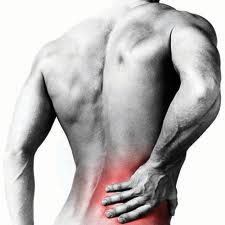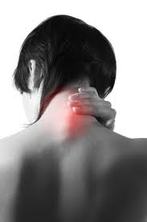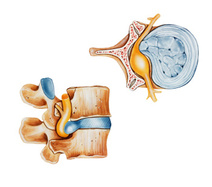Does the Research Support Chiropractic Care?
The following is not a exhaustive list of all Chiropractic Research, however, it does represent a concise summary of the latest peer-reviewed literature that supports the use of spine manipulation (the most notable chiropractic therapy) for common musculoskeletal conditions. While this discussion emphasizes spine manipulation, it should be noted that at Dynamic Motion, patients are usually treated with multimodal therapy (e.g., mobilization, soft-tissue therapy, exercise therapy, electrotherapy, lifestyle and ergonomic advice, nutritional recommendations, etc). Also included here is information on ways the contemporary chiropractic profession is improving on its evidence-base.
Mechanical Low Back Pain

Few other health care interventions have been assessed as extensively as spine manipulation for low back pain, both in terms of safety and effectiveness. A 2010 systematic review concluded that spine manipulation achieves equal or superior improvement in pain and function than all other commonly used treatments for acute low back pain (See reference 1). In fact, even the American College of Physicians and the American Pain Society have recently recommended that spine manipulation be considered for people who do not improve on their own (See reference 2). Indeed, a recent, hospital-based study found that a combination of medication, progressive exercise, and spine manipulation offered patients significantly greater improvement than ‘usual-care’ (See reference 3). Moreover, a high-quality 2012 medical study found that spinal manipulation was significantly better than the NSAID medication Diclofenac and also clinically superior to placebo (See reference 4).
The public appears to agree with the scientific literature, as the Consumer Reports Health Ratings Center survey (April 2009) revealed that chiropractic was the most satisfying treatment available for back pain.
The public appears to agree with the scientific literature, as the Consumer Reports Health Ratings Center survey (April 2009) revealed that chiropractic was the most satisfying treatment available for back pain.
Neck Pain

Many studies have been published that examine manual therapies for the treatment of neck pain. The most recent high-quality study published found that for acute and subacute neck pain, spinal manipulation and exercise are more effective than medication in both the short and long term (See reference 5). Indeed, most studies that have examined spinal treatments for neck pain have reached similar conclusions, and in 2010 a high-quality systematic review concluded that spine manipulation or mobilization can provide immediate or short-term improvement in pain and function (See reference 6).
As it was for back pain treatment, the public appears to agree with the scientific literature regarding chiropractic neck pain treatment; the Consumer Reports Overview of Alternative Therapies (July 2011) revealed that chiropractic was considered more effective than all other neck-pain treatments.
As it was for back pain treatment, the public appears to agree with the scientific literature regarding chiropractic neck pain treatment; the Consumer Reports Overview of Alternative Therapies (July 2011) revealed that chiropractic was considered more effective than all other neck-pain treatments.
Headaches

A 2011 systematic review concluded that chiropractic therapies might be as effective as some commonly used medications for the prevention of migraine headaches (See reference 7). In addition, a unique subgroup of headaches caused by joint irritation in the neck (cervicogenic headache), also appear to respond well to manual therapies like chiropractic (See reference 8). The Consumer Reports Overview of Alternative Therapies (July 2011) indicated that the public considers chiropractic one of the top three most effective treatments for headaches and the highest rated drug-free approach to headache treatment.
Interestingly, high-quality research has confirmed that acupuncture can also offer significant relief of both tension headaches (See reference 9) and migraine headaches (See reference 10).
Interestingly, high-quality research has confirmed that acupuncture can also offer significant relief of both tension headaches (See reference 9) and migraine headaches (See reference 10).
Lumbar Disc Herniations and Radiculopathies

Research currently suggests that spinal manipulation is safe for the treatment of disk-related pain (See reference 11). A 2011 systematic review found moderate quality evidence to suggest that spinal manipulation is effective for the treatment of acute lumbar disk herniation and acute sciatica (See reference 12). Moreover, a 2010 RCT found that up to 60% of patients with chronic sciatica who had failed other medical management benefited from spinal manipulation to the same degree as if they underwent surgical intervention (See reference 13).
'Maintenance' Care?

Combined with an active self-care program, many chronic pain patients find great benefit from ‘maintenance’ (or more accurately, ‘supportive’) care. A medical doctor/researcher has recently published the results of a high-quality study that examines long-term spinal manipulation in patients with chronic low back pain. The study found that “maintenance spinal manipulation” every 2 weeks obtains improved long-term benefits (See reference 14).
Ongoing Research in Public Universities

The Canadian Institutes for Health Research (CIHR) is partnered with the Canadian Chiropractic Research Foundation (CCRF) to provide grants to chiropractors and other scientists for high quality, chiropractic research. This partnership has now placed fully-funded chiropractors, doing high-quality chiropractic research, in 12 of the public universities across Canada.
References
1) Dagenais S, Gay RE, Tricco AC, Freeman MD, et al., NASS Contemporary Concepts in Spine Care: spinal manipulation therapy for acute low back pain. Spine J. 2010 Oct;10(10):918-40.
2) Chou R, Qaseem A, Snow V, Casey D, et al., Diagnosis and treatment of low back pain: a joint clinical practice guideline from the American College of Physicians and the American Pain Society. Ann Intern Med. 2007 Oct 2;147(7):478-91.
3) Bishop PB, Quon JA, Fisher CG, Dvorak MF. The Chiropractic Hospital-based Interventions Research Outcomes (CHIRO) study: a randomized controlled trial on the effectiveness of clinical practice guidelines in the medical and chiropractic management of patients with acute mechanical low back pain. Spine J. 2010 Dec;10(12):1055-64.
4) von Heymann WJ, Schloemer P, Timm J, Muehlbauer B.Spinal HVLA-Manipulation in Acute Nonspecific LBP: A Double Blinded Randomized Controlled Trial in Comparison With Diclofenac and Placebo. Spine (Phila Pa 1976). 2012.
5) Bronfort G, Evans R, Anderson AV, Svendsen KH, et al., Spinal manipulation, medication, or home exercise with advice for acute and subacute neck pain: a randomized trial. Ann Intern Med. 2012 Jan 3;156(1 Pt 1):1-10.
6) Gross A, Miller J, D’Sylva J, Burnie SJ, et al., Manipulation or mobilisation for neck pain. Cochrane Database Syst Rev. 2010 Jan 20;(1):CD004249.
7) Chaibi A, Tuchin PJ, Russell MB. Manual therapies for migraine: a systematic review. J Headache Pain. 2011 Apr;12(2):127-33.
8) Chaibi A, Russell MB. Manual therapies for cervicogenic headache: a systematic review. J Headache Pain. 2012 Mar 30. [Epub ahead of print]
9) Linde K, Allais G, Brinkhaus B, Manheimer E, et al., Acupuncture for tension-type headache. Cochrane Database Syst Rev. 2009 Jan 21;(1):CD007587.
10) Linde K, Allais G, Brinkhaus B, Manheimer E, et al., Acupuncture for migraine prophylaxis. Cochrane Database Syst Rev. 2009 Jan 21;(1):CD001218.
11) Oliphant D. Safety of spinal manipulation in the treatment of lumbar disk herniations: a systematic review and risk assessment. J Manipulative Physiol Ther. 2004 Mar-Apr;27(3):197-210.
12) Leininger B, Bronfort G, Evans R, Reiter T. Spinal manipulation or mobilization for radiculopathy: a systematic review. Phys Med Rehabil Clin N Am. 2011 Feb;22(1):105-25.
13) McMorland G, Suter E, Casha S, du Plessis SJ, et al., Manipulation or microdiskectomy for sciatica? A prospective randomized clinical study. J Manipulative Physiol Ther. 2010 Oct;33(8):576-84.
14) Senna MK, Machaly SA. Does maintained spinal manipulation therapy for chronic nonspecific low back pain result in better long-term outcome? Spine (Phila Pa 1976). 2011 Aug 15;36(18):1427-37.
Information above courtesy of Able Body Health
2) Chou R, Qaseem A, Snow V, Casey D, et al., Diagnosis and treatment of low back pain: a joint clinical practice guideline from the American College of Physicians and the American Pain Society. Ann Intern Med. 2007 Oct 2;147(7):478-91.
3) Bishop PB, Quon JA, Fisher CG, Dvorak MF. The Chiropractic Hospital-based Interventions Research Outcomes (CHIRO) study: a randomized controlled trial on the effectiveness of clinical practice guidelines in the medical and chiropractic management of patients with acute mechanical low back pain. Spine J. 2010 Dec;10(12):1055-64.
4) von Heymann WJ, Schloemer P, Timm J, Muehlbauer B.Spinal HVLA-Manipulation in Acute Nonspecific LBP: A Double Blinded Randomized Controlled Trial in Comparison With Diclofenac and Placebo. Spine (Phila Pa 1976). 2012.
5) Bronfort G, Evans R, Anderson AV, Svendsen KH, et al., Spinal manipulation, medication, or home exercise with advice for acute and subacute neck pain: a randomized trial. Ann Intern Med. 2012 Jan 3;156(1 Pt 1):1-10.
6) Gross A, Miller J, D’Sylva J, Burnie SJ, et al., Manipulation or mobilisation for neck pain. Cochrane Database Syst Rev. 2010 Jan 20;(1):CD004249.
7) Chaibi A, Tuchin PJ, Russell MB. Manual therapies for migraine: a systematic review. J Headache Pain. 2011 Apr;12(2):127-33.
8) Chaibi A, Russell MB. Manual therapies for cervicogenic headache: a systematic review. J Headache Pain. 2012 Mar 30. [Epub ahead of print]
9) Linde K, Allais G, Brinkhaus B, Manheimer E, et al., Acupuncture for tension-type headache. Cochrane Database Syst Rev. 2009 Jan 21;(1):CD007587.
10) Linde K, Allais G, Brinkhaus B, Manheimer E, et al., Acupuncture for migraine prophylaxis. Cochrane Database Syst Rev. 2009 Jan 21;(1):CD001218.
11) Oliphant D. Safety of spinal manipulation in the treatment of lumbar disk herniations: a systematic review and risk assessment. J Manipulative Physiol Ther. 2004 Mar-Apr;27(3):197-210.
12) Leininger B, Bronfort G, Evans R, Reiter T. Spinal manipulation or mobilization for radiculopathy: a systematic review. Phys Med Rehabil Clin N Am. 2011 Feb;22(1):105-25.
13) McMorland G, Suter E, Casha S, du Plessis SJ, et al., Manipulation or microdiskectomy for sciatica? A prospective randomized clinical study. J Manipulative Physiol Ther. 2010 Oct;33(8):576-84.
14) Senna MK, Machaly SA. Does maintained spinal manipulation therapy for chronic nonspecific low back pain result in better long-term outcome? Spine (Phila Pa 1976). 2011 Aug 15;36(18):1427-37.
Information above courtesy of Able Body Health

